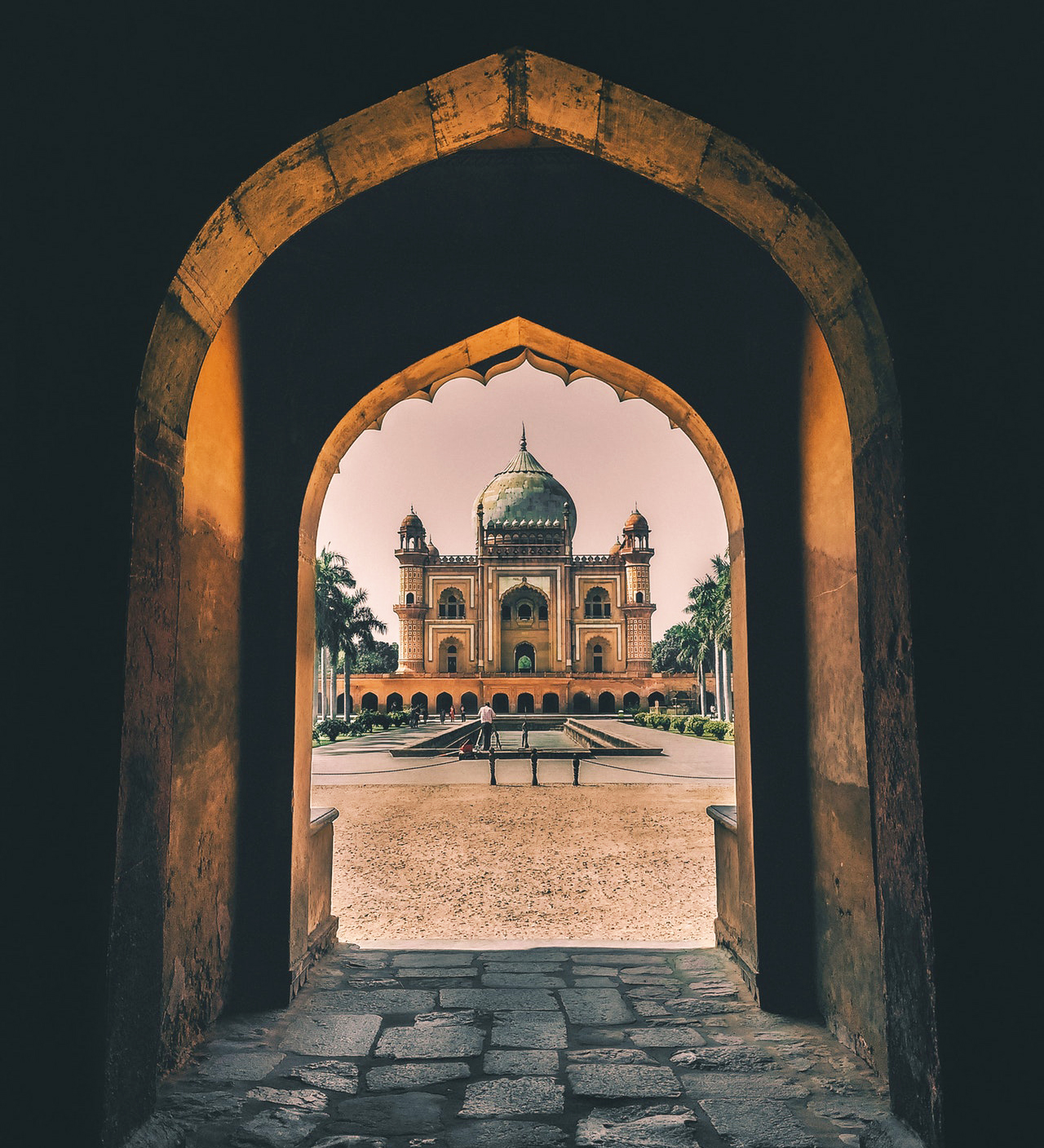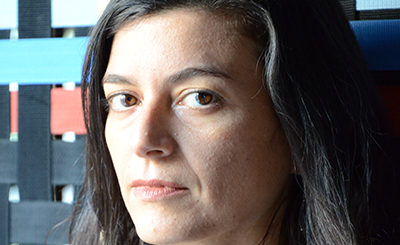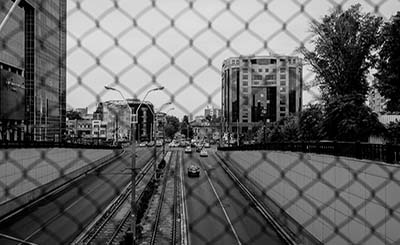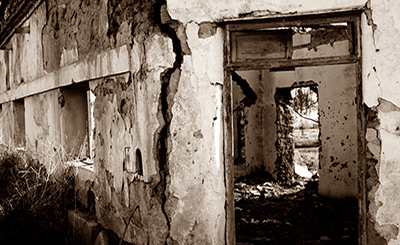
Yamuna
Like a venomous snake,
I turn and bend
carrying the dark sewer in my veins
people think I am but a drain.
They fear me, despise me
stare amused while stranded in traffic
or in the metro cars passing on the bridges over me
and are repulsed by the stench that owns me.
May be the farmers ploughing their lands
and the cattle who feed on the grass
off the fields along my banks
think a little more of me.
But people see my might
when it rains,
as the heavens pour their hearts out
and I erupt in a dance of joy.
I am full and lithe,
and soon I am unshackled, unrestrained
I am power, I am energy, raw
I devour my own decay.
But people fear me, despise me
stare amused while stranded in traffic
or in the metro cars passing on the bridges over me
pity, that to know me as a river that I once must have been,
people have to only witness me in spate.
Sarai Kale Khan
“It is a difficult poem
that the fakir sings”
Nagma lay under the shade
of the Neem tree, as she thought.
“The fakir sings of God,
love, affection and care
but wait, are these things of this world?
or of the land where God lives?”
Nagma was born in a tempest
and grew up with a fate macabre
her mother hated her for being a girl
though there was no father she could call her own.
The factory owner gave her a job
gave her money, some lipstick
a few dresses and some jewellery
but robbed her of herself.
Nagma fought hard,
and she continued working
but the villagers she called family and kin
said she was the culprit of her own fate.
The Khap disowned her
and pronounced that she must forsake the village
lest she pollute other impressionable minds
she should flee, or suffer the cost of disobey.
A world other than her village
was something she thought she never needed to know
her village was good enough a dreamland
where she wanted to start a family she could call her own .
Yet, Nagma, was all of fifteen
when she set her foot on the highway
and hailed a lift to the town
with big lights and fancy sights.
She found herself in Sarai Kale Khan
amidst a caravan of people
all travellers from somewhere to someplace else
some,perhaps, in search of themselves.
She found a job in a small tailor shop
where she could stitch her life together
like an applique of her memories, happy and sad
and make a living on the rug of her hardwork.
“Aapa, masterjee has called for you,
come on, it is getting late”
Nagma suddenly wakes up from the siesta
as Shaheen calls her from across the road.
The fakir is still singing praises
in the lord’s name, as a lazy afternoon sun
tans Sarai Kale Khanwith a divine glow
of faith and hope.
Waiting in the Twilight
Aai* sits in the chair, in the alley beside the garage
sometimes, in the garden
that faces the main gate
I always see her smiling as she waits
for us to arrive at the gate
this is a ritual that happens always
the grey hair now turning white
the black of it long gone
of the long flowing black hair
that once it was.
The old chandan tree smiles in the mild wind
and the champa flowers carpet the road in front of her
while the occasional langur leaps out in mad joy,
as street mongrels wrestle it out in the sand heap on the road outside
the chaatwala starts out from his home,
full of colour, food, and happiness
and the cotton candy man chimes his bell out aloud
Aai sits taking it all in
as much as her eyes allow her to see
for the rest, she turns to nostalgia
the memories of things like they used to be.
When Aja was around
he would also be out making his rounds
around and about the campus
on most days, stepping out to
buy samosas, vegetable chops and sandesh
from the small store that called itself, ‘the ‘bangalidokaan’
small, tiny samosas, and small beetroot color chops
which packed a deluge of flavours in them
and pulled in connoisseurs from one end of the town to another
Aai would sit then, too
for Aja to return, armed with the battery of paper packs
stashed with food, ration and love.
Then Aai was younger, and had energy
but now she is old, though not frail and weak
we often ask her, why she sat braving the heat and rain
“don’t the mosquitoes bother you
or the dust fill your lungs?
doesn’t the drudgery of waiting
bother you, bore you and irritate you?”
but she says it gives her pleasure
to see us come back
each time, all the time
like a bird tracing back its day’s endto its nest
she says she feels alive
and comforted by the fact that we are all together once again
back to samosas, pakodas, chutney and tea
and the aroma of a family brew.
*Aai, maternal grandmother in Odia. Aja, maternal grandfather in Odia.
The Grapevine
The old ancestral house was it’s muse
as it coquettishly grew through its nooks
it held the old walls in an embrace
of deep love, and selfless care
it fed on the delectable memories
of Sunday brunches, and evening savouries.
It grew taut, and strong
relishing on the familial bonds
the ancient temple in the courtyard
that was there before the first brick of this house was laid
had been the room of the family’s presiding deities
who surely seemed to like
the air intoxicated by its warm herbage.
The grapevine threw branches all around
like the kids of the daughters and sons
frolicking and monkeying around
the grape bunches came as blessings
and they packed flavours, sweet and tangy
the recipe of love founds its way
spicing the grapes into a chutney,of love and happiness.
Holy ceremonies, and weddings
were all under its holy shade
like a mother, it lay protecting the commune
but the winter winds of despair
they descended, like vultures, with ominous glares
like a cloudburst, the demon of discord came.
The gnawing pain of partition divided the warm dwelling place
butchering the filial affection
that had held them strong in heat and gail
the grapevine wilted and faded
in this fury flood of pain
the shade that once protected them all
shed its foliage, like drops of rain.
There is no grapevine today
the courtyard is parched and bare
there are no occasions of joy to celebrate
the ancestral house weeps, lamenting at what remains
the gods seem to have abandoned their courtyard room
what curse has befallen the place?
* The poet recalls the grapevine that grew in his ancestral house, and how it was a central figure in the family’s life. Nostalgia paints his thoughts as he remembers how the courtyard was a joyous place for the family, as it flourished beneath the grapevine laden with fruits and leaves. And how the subsequent partition of the property led to the slow death of the vine, and disaffection in the family.
Dilli/Delhi
Often I have wondered
what do I like about you?
I am not a Dilliwala
so do I know enough to have a say
I first came visiting you as a tourist
I came later, as a student
I kept coming back to you
like you were some addiction
that I found hard to give up.
I have seen the places that make you famous
Like, your date with history, the sultanates, and royalty
I have lived, even though in parts and bits
to see what makes you infamous too
the air, the automobile, and the haze
the very base in which life sustains
is polluted, dark and convoluted
what is there to like about you?
Often I have pondered
as I have waited for hours in
serpentine traffic, soaked in the sweat
of irritation and humidity
though I have tried to make peace with all else
over plates of tikki chaat and chole bhaturey
I have reflected as the gullies of Chandni Chowk
have tantalised my gluttony — seducing me,
cajoling me with a reason to like you.
The other day at Dargah Hazrat Nizamuddin
I passed three kids, in wanton glee
no clothes intact on their frail bodies
bodies, a set of bones dangling, like a magician’s conjuring.
they played and clapped, a desi pup in hand
an ice candy in the other, they ran,
with smiles lighting up their cherubic faces
like sun peeping out of dark clouds after harsh rains
the sound of their laughter spoke
like the azaan from the mosque next door
and they jumped and frolicked
without the slightest care for the world
The warm caress of love on them
That you embalmed like a nurturing parent
Bared your heart to me, as I kept soaking in
This sight of unadulterated innocence and peace
That and many such moments whisper to me
As an endless effervescence of romance that endears your essence to me
I may not be a Diliwala yet,
But I do know enough to say
That your rise, and raise despite what you are made out to be.
More from The Byword
Comments
*Comments will be moderated
Excellent poems...simple yet so touchy ...looking forward to read more from you
pragnya89mishra@gmai
Sep 24, 2019 at 11:28











